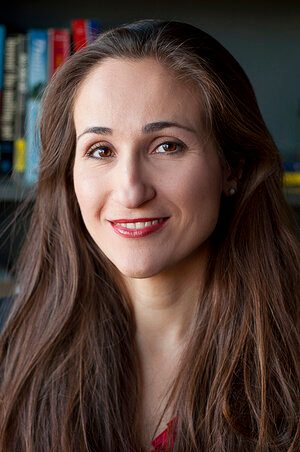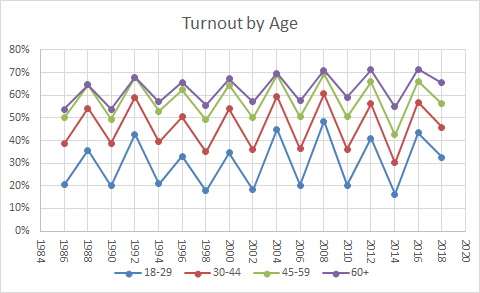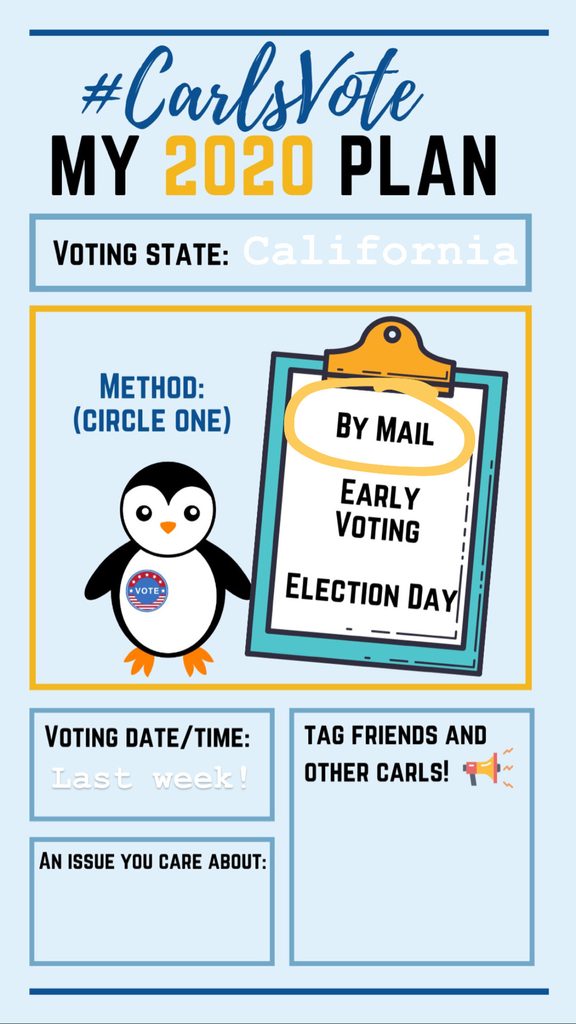
On Friday, October 16 Dr. Mindy Romero, a political sociologist from the Center for Inclusive Democracy, virtually visited to give the weekly convocation talk. As a senior economics and statistics major currently studying remotely from Washington, D.C., I was excited to learn more about voting equity. Her convocation talk focused on an issue that has been on my mind a lot lately – voting and “The Power of the Youth Vote.” It’s no surprise that we do not vote. The youth vote peaked in 2008 but has been decreasing ever since (in presidential election years)(electproject.org). While it may feel as if everyone is posting ballot selfies on Instagram* and encouraging others to vote, only about 40% of people aged 18-24 voted in 2016(electproject.org).

The fact that this lower rate is so normalized means that politicians don’t focus their efforts on reaching out to younger voters or listening to their concerns. This neglect feeds into a vicious cycle of young people not voting because they do not think it makes a difference or that their voice is not heard. This cycle has an even more devastating impact for youth of color and underserved communities. A marginally stronger youth turnout could make the difference in so many races – I always think about the rumored Harambe write-ins in 2016. It is important to acknowledge the privilege that I, and much of the Carleton community, have in seeing voting as a given. Dr. Romero’s lecture reminded me that we must make genuine longterm outreach efforts a priority and work to take down barriers that have hindered BIPOC voters since this country’s founding.
The conversation with Dr. Romero and other members of the Carleton community that followed gave me a lot to reflect on about voting. Here are a few of my takeaways:
- Voting every election cycle isn’t everyone’s default. Getting to watch my parents fill out their ballots in a “no-excuse” absentee state, ingrained in me that voting was a civil right and duty. We have to use our K-12 education systems to create a more universal understanding of voting.

- Being at Carleton has skewed my sense of youth voting. Attending college, let alone a politically engaged liberal arts college like Carleton, means I’m in an environment where voting and talking about what we want out of our political system is pretty commonplace. Dr. Romero’s talk illustrated how varied young people’s experiences of voting and politics can be. Among Carleton students there is even a large amount of variety in background, political engagement, and political opinions — for example I will be graduating with student debt that will inherently influence how I vote and this may not be the same for other students. Since I have been off campus this term, I have engaged in this discourse with fewer people and have had less student directed outreach, two cornerstones of the college political engagement sphere. It has made me realize that It is important to acknowledge and understand this “bubble” effect when encouraging others to vote.
- Don’t assume that someone is choosing not to vote because they don’t care. When encouraging people to vote in person and on social media, it is important to acknowledge that everyone has different preconceived notions about voting. Meet people where they’re at …… and don’t shame others.
- Voting is a very minor, but important step. There are a host of other ways to be involved in non-election years that are equally important. In January 2021 (after the election) you can: contact your elected officials, donate to mutual-aid funds, volunteer, stay informed on the issues, protest if you’re able, and a host of other things. Most importantly, make voter outreach in underserved communities the beginning of a long-term relationship.
Most importantly, this conversation inspired me to sign my absentee ballot and walk it down to the mailbox. If you’ve also been sitting on your ballot — let this be your sign!
*Ballot selfies can disqualify you in some states so check before posting !!